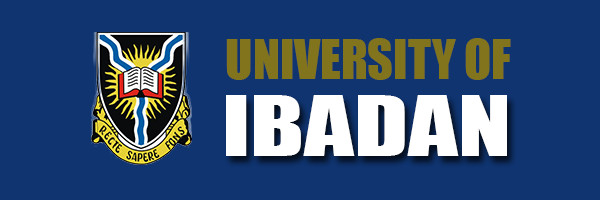The VTH was established in December 1981 by the University of Ibadan after it was approved by the Development Committee and the Senate of the University. The aims and objectives are:
Aims
I. To serve the Faculty of Veterinary Medicine in the areas of Teaching, Research and Services.
II. To satisfy the professional demand of recognition of the Veterinary Professional degree of this University by the Veterinary Council of Nigeria.
III. To comply with the National University Commission (N.U.C.) on Agricultural Education in Nigeria that each Veterinary Faculty should have a Veterinary Teaching Hospital.
IV. To meet current and future needs of this institution and the entire country.
Objectives
a. A well equipped Veterinary Teaching Hospital should normally form an indispensable part of agood school of Veterinary Medicine. It is, therefore, the nucleus of Clinics and Extension Services, diagnostic servicesand animal and public health activities on routine basis.
b. The Veterinary Teaching Hospital provides a core of experts that is readily available for consultation and service to individuals farmers, groups or corporations and government establishments on all aspects of livestock production,
c. Because of (a) and (b) the Veterinary Teaching Hospital enhances specialized facilities for clinical teaching of undergraduates by practical examples.
d. The Veterinary Teaching Hospital brings research findings to the doorsteps of livestock farmers so that such findings can be easily translated to immediate use.
e. The Veterinary Teaching Hospital comprises specialized Departments in which Internship programmesare adequately carried out. All Interns shall serve a minimum stipulated period in each Clinical Department.
f. The Veterinary Teaching Hospital also provides a forum of continuing education for livestock men and a bank of up-to-date technology on animal health.
g. The Veterinary Teaching Hospital should serve as a Centre for Board Certification Examination which is being proposed by the Veterinary Council of Nigeria.
h. Also the core of extension workers and Clinicians in the Veterinary Teaching Hospital shall constantly lay the immediate and future problems of livestock production at the doorsteps of academic staff so that research efforts can truly be of direct relevance to the needs of the country.
In 1986, the University of Ibadan Governing Council at its meeting of 13 November considered the recommendation from the Faculty of Veterinary Medicine for the establishment of a Governing Council for the Veterinary Teaching Hospital and approved it. In 1989, NUC approved the establishment of VTH, UI. Service providers were thus appointed and paid clinical supplementation and other MSS allowances as approved by the Federal Government from time to time.
Functions of the Veterinary Teaching Hospital
The functions are derived from the concept of a teaching hospital which is to provide:
a. A high concentration of experts for consultation and service to the livestock, agro-allied and public health sectors;
b. A hospital with specialized facilities to facilitate the teaching of clinical students who rotate through various Departments in the hospital;
c. A referral center for clinical services that require specialized knowledge and expertise, which are otherwise not available in the State and private Veterinary Services
d. A rallying point for continuing education programmes that could involve livestock, poultry and fish farmers, veterinary practitioners and schools, and a bank of up-to-date technology on animal production;
Training of Veterinary Residents in various specialty areas. The Residency program is intended to shift emphasis of postgraduate training from purely academic to a practical approach. The four bodies that currently regulate the activities of the Veterinary Teaching Hospital are: the Administrative and Clinical Services Committee, Body of Consultants, the Finance Committee and the Veterinary Teaching Hospital Management Board.
Vision
To advance animal health through education, innovation and specialized tertiary health care delivery and to use scientific knowledge and professional skills for the benefit of the society through the protection of animal health, relief of animal suffering, the conservation of livestock resources, the promotion of animal production and public health and the advancement of Veterinary knowledge.
Mission
1. Provision of specialized facilities for the effective teaching of Clinical Veterinary Students at undergraduate and postgraduate levels.
2. Provision of hospital services (medical, surgical, public health and preventive medicine, diagnostic etc.) for clients in the University environment and beyond.
3. Ambulatory hospital services to near and distant locations including the University Teaching and Research Farms, Animal Production Venture, Zoological Gardens, Agodi Gardens, Eruwa Veterinary Field Station, Livestock, Poultry and Fish Farms.
4. Operation of satellite clinics.
5. Provision of practical training for Veterinary Students of other Universities and Animal Health Technology students.
6. Development of innovative techniques and procedures to further advance the field of Veterinary Practice.
Core Values
The VTH core values are promptness, compassion, excellence, selflessness and wellness.
Staff Composition and Functions
The core staff of the VTH comprises Veterinary doctors, Animal Health Superintendents, Assistant Animal Health Superintendents, Technologists, a Radiographer/Ultrasonologist, Administrative staff, Pharmacy Technicians, Livestock Attendants, one Laundry Man and one Senior Transport Supervisor. Clinical, Technical, Consultancy and Support service providers are based in the six clinical Departments and the Experimental Animal Unit. In essence, all Clinics, Surgical Theatres, Radiology Units, Diagnostic Laboratories, Pathology Services, Wildlife and Zoological Garden Medicine, Fish Medicine, Meat and Food Safety services and all aspects of Veterinary Public Health and Preventive Medicine etc. are under the auspices of the Veterinary Teaching Hospital
